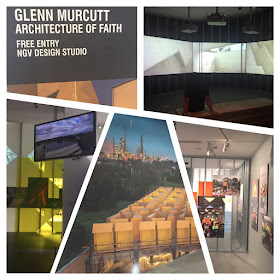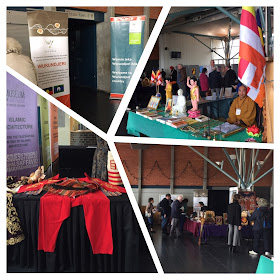[Edited extract from public address]
The Victorian Interfaith Networks Conference (VINC) is an annual grass-roots conference building capacity, understanding and sustainability of existing multifaith/interfaith networks. Bringing people up-to-date with current multifaith/interfaith matters and providing networking opportunities.
Registration opened in the main foyer providing participants time to peruse various and diverse community stands, meet and greet old and new friends alike while enjoying wonderful catering from the Asylum Seekers Resource Centre Catering.
Welcome, Official words and a keynote speech by Reverand Matt Glover on
Faith and Social Inclusion. Matt shared his personal and professional experience with trying to undo some of the damage caused by religious adherents to people of sexual diversity. He implored all to adopt the “First Do No Harm” view in the ongoing daily human struggle against ignorance, prejudice and violence.
Workshop 1: Faith, Compassion and Justice
Each religion teaches ethical and moral precepts. Facilitator Gary Bouma AM, (UNESCO Chair in Intercultural and Interreligious Relations Asia Pacific) guided panelists and Audience through probing questions including:
-- How does your faith promote compassion and the seeking of justice?
-- How does your faith seek the good for all people?
-- How does your faith limit or impede individuals' impulses to care?
Discussion included: faith and ethics, diversity of views in each community, the challenge of change of the time, who determines goodness/evil and how, what constitutes justice, fairness and deserved caring.
Workshop 2: Voices of Youth: Faith, Interfaith and Multiculturalism
Facilitator Frances Prince (Multicultural & Interfaith Liaison Officer, JCCV) guided the inspirational panellists and Audience through a workshop providing inspiring, original insights and opinions.
Wide-ranging discussion included:
- Faith or religion of panellist and panellist’s family, practices/rituals/traditions/values enjoyed and found meaningful within family and within religious community,
- Interfaith dialogue and what it means to panellists on an individual level with a recounting of any Interfaith dialogue experiences. Assessing the merit of those occasions, listing positives and negatives, assessing worthiness of continuing Interfaith dialogue, and what might like that to look like.
- Multiculturalism was defined from each panellists’ point of view, and descriptions of what a multicultural society looks like. Panellists were asked to consider the relationship between ideals of a multicultural society, purpose and role of interfaith dialogue through this process and if/why/how they are interconnected.
Workshop 3: Faith, Sexuality and Gender Diversity
This workshop featured experts, faith leaders and people of Muslim, Christian and Jewish faiths - exploring intersections, overlaps and collisions of faith, sexuality and gender diversity.
From a base of human dignity and respect, Facilitator Luke Gahan (Author and La Trobe University Researcher) guided panellists and audience to discuss personal, familial, peer and community experiences with:
- obstacles faced for religious individuals and communities embracing gender diversity
- justifications for permissible exclusions: when to hold opposing beliefs in tension and fostering belonging
- shining examples of faith communities actively including lesbian, gay, bisexual, transgender and intersex individuals and publicly challenging discriminatory, prejudiced or hate-filled attitudes
Workshop 4: “Say NO to Racism” Bystander Training
Facilitators Polykala use experiential learning to encourage participants to do, learn and reflect on the go through typically-found situations.
This was a snap-shot presentation into the
Say No to Racism training that encourages and enables participants to take safe and constructive action against racism. Usually a full-day, the training covers interpersonal racism and its impacts, barriers to bystander action, the potential of bystander anti-racism and practical skills and tools to help people take action.
Participants of the workshop were introduced to strategies used for constructive and safe bystander action agains racism. It provided information on social barriers to bystander action and the relevance to faith-based communities. Participants had a chance to practice strategies to get a sense of how to diffuse, deescalate or resolve conflict in real life.
Art Displays Included:
- Journey of Hope: the Art of Seeking Asylum. There was Art displayed from Baptcare’s Sanctuary, transitional housing program for people seeking asylum. Representing on this occasion eighteen nationalities, five religions and multiple forms of non-religious and post-religious spirituality. Trauma challenges, interrupts and changes human spirituality. Sanctuary recognises that art is a form of creative spiritual nurturing that provides affected people a means of making meaning, reconstructing capacity and building relationships with others and unfamiliar environments.
- Disability and Faith: Exclusion and Embrace. Exhibited works by artists living with intellectual disability and providing a means to explore the inner self, physical and spiritual world. Acknowledging the struggles and joys found in the the experience of disability and faith.
Where: Darebin Arts & Entertainment Centre - Corner of Bell Street & St Georges Road, Preston VIC 3072
On behalf of Buddhist Council Victoria Interfaith (bINTER) and Glen Eira Interfaith Network (GEIFN), thankyou to FCCV, Darebin City Council, Northern Interfaith Intercultural Network and State Government of Victoria for aspired leadership, inspired teamwork and free attendance. A memorable presentation, skilful programming, food and collective pride, received with gratitude.
MORE:
Faith Communities Council of Victoria
Mr Sandy Kouroupidis, Multifaith Officer
Mobile: 0412 670 369
Email:
officer@faithvictoria.org.au
Darebin City Council
Mr Aziz Cooper, Interfaith Development Officer
Tel: (03) 8470 8519
Email:
Aziz.Cooper@darebin.vic.gov.au
This event is proudly supported by the Faith Communities Council of Victoria, Darebin City Council, Darebin Interfaith Council and the Office of Multicultural Affairs & Citizenship.




